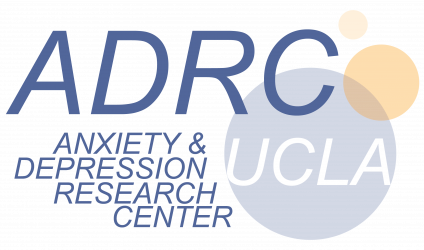This study has concluded and is no longer open for recruitment.
Anxious in social situations? Fear of public speaking?
This study offers low-cost behavioral therapy for social anxiety disorder. Please read below for more information or contact Bita Mesri at 310-206-9191 or uclanmstudy@gmail.com.
The Neural Mediators of Behavior Therapy study is funded by the National Institute of Mental Health (NIMH). The Neural Mediators study is designed to compare two different versions of behavioral therapy for social anxiety disorder. The first version involves teaching methods for slowing physiological responding, changing erroneous thoughts about anxiety inducing situations, and modifying behaviors in order to learn to overcome fears of specific objects, places, or experiences, through exposure therapy. The second treatment version involves strategies designed to replace anxious physical responding and negative thinking with mindful and nonjudgmental observation, and shift behavior towards achieving life goals, again through exposure therapy. Some of the participants will be assigned to a waiting period before they start one of the two behavioral treatments. The goal is to compare the neural mechanisms of each treatment approach.
Eligibility Criteria
Individuals who meet diagnostic criteria for Social Anxiety Disorder, are eligible for the study if they are between the ages of 18 to 60, are English speaking, are not currently suffering from major medical conditions, and are either un-medicated or stabilized on medications for anxiety or depression.
Screening Procedures
Interested participants leave their contact information (i.e., name, phone number, best times to call) at (310) 206-9191 (a voice answering machine). Participants are then phoned by study personnel and asked a few simple screening questions. If eligible, participants are scheduled for an in-person, no-cost, diagnostic evaluation (approximately 2-3 hours) at the UCLA Psychology Clinic and also will complete an fMRI (Functional Magnetic Resonance Imaging) assessment. Referrals are provided when the diagnostic evaluation indicates lack of eligibility for the study. Eligible participants are randomly assigned to either one of the two treatment conditions.
Treatment Procedures
Treatment is conducted one on one, over 12 weekly visits (at the UCLA Psychology Clinic) and is followed by phone calls once a month for the next 6 months. Assessments are conducted prior to beginning treatment, at completion of treatment and 6 months later. These assessments include diagnostic evaluations, a battery of self-report questionnaires, behavioral observation, physiological recording in a laboratory, and a repeat of the FMRI at post treatment.
Fees
There are no fees for any of the assessments (prior to treatment, at completion of treatment, and 6 months after treatment). Parking costs for each assessment are reimbursed upon request. In addition, participants are offered cash in the value of $15 for follow-up assessments at post treatment, 6 months and 12 months, and $25 for follow-up assessments at 12 months and 24 months. Treatment fees are on a sliding scale – based on income, for 12 sessions.
Study Personnel Contact
For further information about this project, contact Bita Mesri at 310-206-9191 or uclanmstudy@gmail.com. This study is conducted in collaboration with Matthew Lieberman, Ph.D.and Shelley Taylor, Ph.D., at UCLA.
Principal Investigator: Michelle G. Craske, Ph.D.

